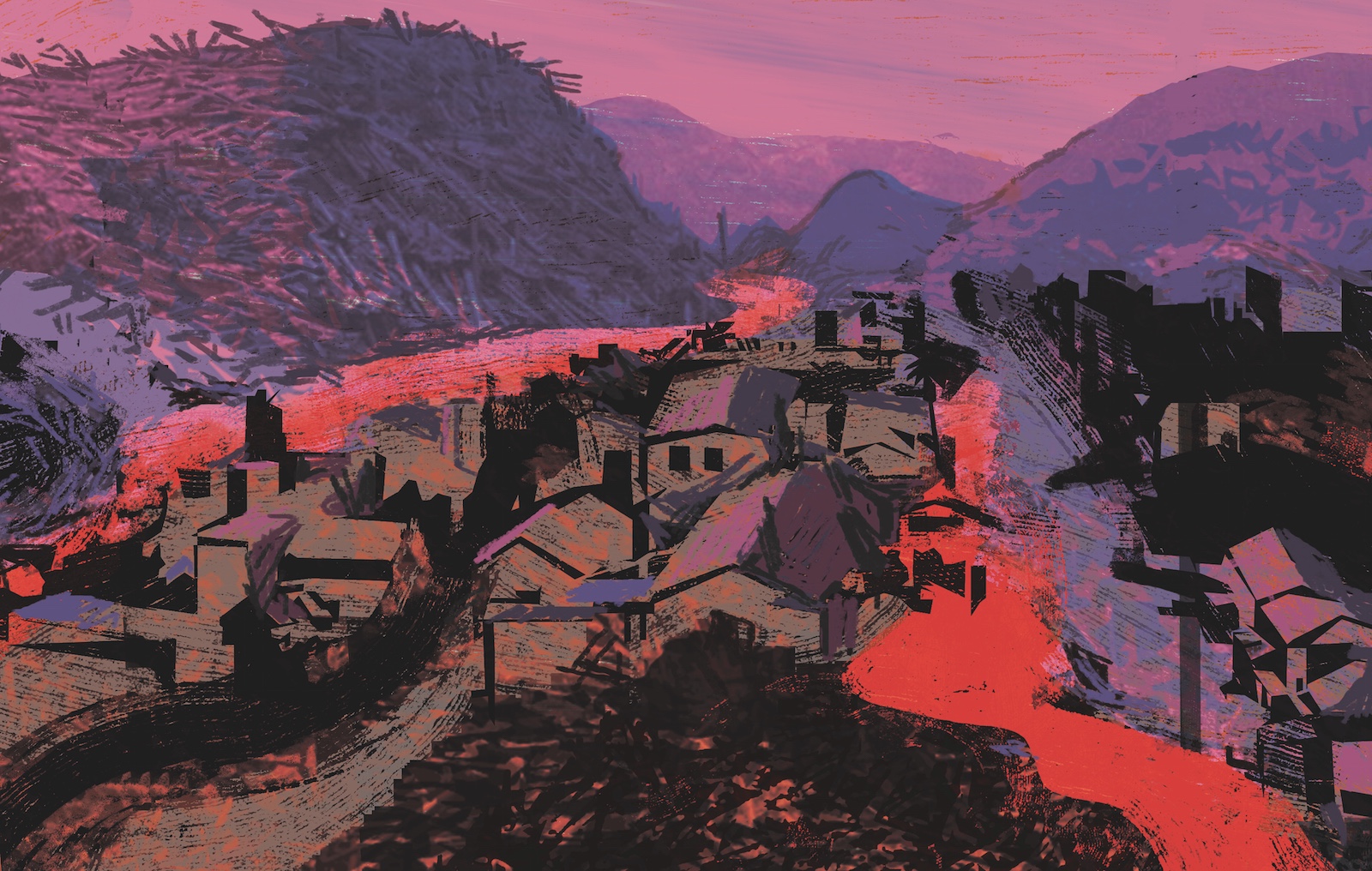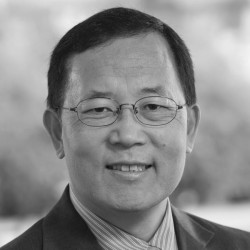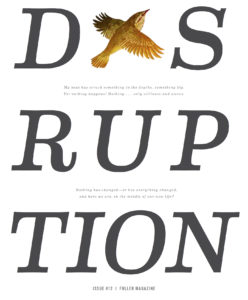
We live in an extraordinary time—a time of “the great disruption.”1 From mass migration and urbanization to the digitization of our culture, the changes are profound, touching almost every aspect of our lives. Of course, disruption and change are not at all new in human history. However, the level of transformation unfolding in our time is different from that of previous eras; it now encompasses trade, jobs, education modalities, cultural aesthetic expressions, and even the basic nature of our social interactions and sense of identity. Indeed, the current disruption is axial in nature. Rarely in history has humanity experienced such disruption in terms of its magnitude, depth, and scope.2
A major source of this great disruption is globalization, which is driven by neoliberal economic forces and technological advances. The idea of a bounded community is increasingly obsolete in a global society; people can freely move around and interact with each other online without the mediation of states. They are increasingly disembedded from face-to-face relationships and communities; this mobility is altering people’s experiences and habits as well as their sense of identity and social relationships. Thus, global civilization is entering a new, unknown era. In the midst of this change and transition many feel like Rip Van Winkle, a character in Washington Irving’s novel, who woke up after a long sleep only to find that the world had dramatically changed. In this era of profound disruption, nobody knows what the future will look like.
The great disruption has thrown humanity into the wilderness—a time of anxiety and unsettledness. These changes are engendering a deep sense of confusion, anxiety, fear, and emotional homelessness. Specifically, globalization deepens the gap between generations (baby boomers and millennials), classes (the rich and the poor), and racial-ethnic groups, which religious fundamentalists and nativists exploit for their own extremist agendas. Brexit, the election of Trump, a rise in illiberal democracy and nativism, anti-immigrant sentiment, and Islamophobia are reactions to these radical disruptions taking place in our communities.
Globalization and interrelated disruptions are also radically impacting Christian churches and Christian higher education— including seminaries—in the United States and other post-industrial societies. As traditional communities and institutions are getting “shelled,”3 churches and seminaries are also losing their appeal to people. Church membership is declining, more seminaries are closing their doors, and younger generations are turning their backs on Christianity. Disruption is profound; the traditional ways of theological education, and of thinking about and practicing the Christian faith, are not working for young generations.
FULLER IN THE GREAT DISRUPTION
Fuller is not exempt from the impact of this great disruption. It is waking up to the harsh, changing realities of Christian higher education: financial pressures, declining student enrollment, and a shrinking public space for progressive evangelicals in society. The decision to move from Pasadena to Pomona is shocking and painful because no one had anticipated that this massive decision would be necessary. Additionally, Fuller’s identity has been so deeply wedded to Pasadena since its birth. Compared to our Pasadena home— with its internationally famous Rose Bowl, diverse culinary culture, historical ties to fervent evangelical Christianity, and vibrant high-end urban life—Pomona might look like a foreign land. Nobody knows for sure what the future of Fuller will be. Like Hebrews in the wilderness who wondered doubtfully whether Canaan would be better or worse for their future than Egypt, we too are not sure whether Pomona will be a new home or our exile, Fuller’s resurrection or its grave.
What is the theological meaning of disruption, and how should we respond to it? As theological students and teachers, how should we understand this new reality theologically?
DIVINE DISRUPTION
No one welcomes disruption because it is unsettling and upsetting. By nature humans want stability and predictability in their lives. Disruption takes away our sense of control and agency. We recognize that disruption is potentially threatening. Disruption demands a response in one form or another. Refusal to respond leads to bigger disruptions later, while a misconceived, misdirected response only worsens the situation. However, a well-defined, fitting response leads to the renewal of a society and its institutions. Although it is threatening, disruption also offers us the opportunity to reinvent ourselves and our communities.
Disruption is not unfamiliar to Christians. The Bible has many stories of disruption, and God is not afraid of disrupting God’s people. By nature, revelation is a disruptive event as it shakes our ordinary sense of life and customary understanding of reality.4 God’s calling of Abraham to an unknown land, Joseph’s slavery in Egypt, and the Virgin Mary’s pregnancy are only a few examples of divine disruption. In fact, God is a God of disruption.
Divine disruption happens when God plans to do something new. It is a response to human sinful disruptions that frustrate God’s good creation. Divine disruption is salvific in nature—preventing human self-destruction and offering an alternative future. Like other major disruptions, it upsets our plans and priorities (as certainly was the case with the biblical examples cited earlier). However, for God’s people, divine disruption offers a precious opportunity to newly encounter God, reset our identity, and renew our ethics.
Divine disruption calls for a faith response, repentance, and recommitment. Divine disruption equips us to participate as creative interrupters of the unjust status quo and moral corruption (e.g., Noah’s contemporaries) and builders of a new community of love and justice. This means that we Christians need to pray for divine disruption in an era of great disruptions—and prepare ourselves to be used for God’s redemptive purpose.
MARTIN LUTHER KING JR.
We find such an example of creative disruption in the ministry of Martin Luther King Jr. King was one of the Christians who took “disruption” in a creative way. Seeing that the age of Western colonialism and racism was ending, he called for a revolutionary transformation of values and a radical change in racial, economic, and international relationships suitable to the post-WWII era. Rather than passively sitting by and watching these changes unfold, he responded to God’s call to be a servant of divine disruption for love and justice. In his campaigns in the South and the North alike, he was labeled an outsider, a rabble-rouser, and a Communist. His phone calls and personal conversations were wiretapped by the FBI.
As a Black Baptist pastor, King’s movement was informed by the Exodus narrative of the Bible (God’s liberation from Egypt, encountering God at Mt. Sinai, journeying through the wilderness to the Promised Land).5 In his prophetic criticism, King relied on the biblical idea of covenant. Like African American leaders before him, King pointed out that racism is not consistent with the moral creeds of the Declaration of Independence, the Constitution, and the Emancipation Proclamation. King used these moral claims and promises as the basis of his social and prophetic criticism, just as the Hebraic prophets used the Sinai covenant as the basis of their moral criticism of the kings, judges, and religious leaders. The passage of the Civil Rights and Voting Rights laws was necessary to maintain the integrity and credibility of the covenant of the nation.
However, as the audacious motto of his movement—“To Redeem the Soul of America”— indicated, King attempted to not only correct the unjust racial relationships of the nation, but also transform its social-political life in a way that is more consistent with the covenantal vision of the Bible and the founding documents.6 With a goal of the renewal of America, his prophetic criticism and nonviolent campaigns touched on racial, economic, and international relationships and democracy. Under King’s leadership, the goal of the Civil Rights Movement was about more than dismantling Jim Crow. It was about changing people and society through the revolutionary transformation of values— which touches not only how one votes, how one spends one’s money, where one lives, but also how one treats others, what one’s moral priorities are, and ultimately who one serves.
Rather than confining his message narrowly to Black freedom and basic rights, King boldly cast his vision for humanity and America (the beloved community first and later the great world house where diversity in unity is practiced), and endeavored to renew and expand the American democratic tradition and Constitution by adding an economic bill of rights. His faith response to disruption in the post-WWII world was to be an instrument of divine disruption for peace, justice, and love of humanity.
King’s response was not so different from that of Jesus and the early Christians. Facing the violent disruption of the Roman Empire, they responded with a radical new message of the kingdom. They were willing to disrupt the status quo of injustice, violence, and self-indulgence for the sake of a new world of common flourishing. Jesus mobilized the brown-skinned, grassroots, and underclass people of Galilee—a land of violence and collective trauma—with the new political economy of God’s kingdom.
Many, including white liberal theologians, accused King of moving “too fast” in his reform movement.7 However, when we look back upon his time, we as a nation missed an opportunity to radically address long overdue racial injustices (dating all the way to the time of the Puritans) and economic inequalities. We used resources for an ill-conceived war in Vietnam, where we spent half a million dollars for each Vietcong that was killed.8 Change delayed is now haunting us in the form of deepening poverty, racial tensions and conflicts, and urban decay. King’s last campaign, the Poor People’s campaign, was deeply misunderstood and treated as nonsense— just like Noah’s Ark—but who knows how salvific it could have been if it were successful.
To be an instrument of divine disruption is to bear inconvenience, discomfort, and even suffering—as King said, it is to be a creative maladjusted person—not conforming to the pattern of the world, but obeying God in the manner of Noah, Abraham, Mary, and many other giants of faith who did so in the face of the disruptions that God brought into their lives.
CONCLUSION
What does this current disruption of moving to Pomona mean for Fuller? How should we respond to this decision in faith? Adapting to a new and changing context is not foreign to Fuller. Following the entrepreneurial spirit of its founder, Fuller has been good at adapting to changing cultures. Many of our programs have been innovative. Even now we try our best to adapt to the great disruption by expanding online courses, theologically engaging with popular culture, and soon popularizing theological study through new offerings to a broader audience. However, as we adapt to change with innovative ideas such as reinventing our courses, programs, and delivery systems, we also need a new, bold, creative moral imagination to undergird courageous actions in faith, because the great disruption that we experience today is too big to be addressed by technical adaptations.
Our time calls for radical spiritual and moral transformation to address the root problems of our society. It has become increasingly clear that the status quo does not work, as it will lead to a deeper crisis, including the possibility of human self-destruction, either in war or ecological disaster.
For evangelicals, the great disruption (and its ensuing economic inequality and concentration of power) challenges us to reset the default mode of evangelicalism—its very understanding of the gospel and ministry practices—to put new wine in new wineskins. In the manner that King’s movement was for the renewal of America itself, Fuller, as a theological institution, is called to undertake this task of recasting the vision of ministry in the 21st century and proclaiming the holistic gospel of liberation and restoration that disrupts the status quo of greedy neoliberalism, decaying white normativity, and ecocidal anthropocentrism. The process inevitably requires the reinvention of theological education and the curriculum itself. This is not a small task, as it requires constant prayer, confession and repentance, intellectual rigor and new learning, and most importantly the gift of fresh inspiration from God. When we are able to achieve this goal, the move to Pomona will not be an exile but an exodus toward the promised land. Rather than being intimidated or victimized by anxiety about an unknown, insecure future or nostalgia for the past, we need to dare to envision a new future that is more authentic to the practice of our faith.
A difficult time is ahead of us; the journey will be a messy process with many pushes and pulls, actions and reactions. But I believe that God’s grace will be sufficient to guide us, with pillars of fire and cloud, as far as we trust God in this wilderness journey. Hence, we need to be faithful, courageous, and creative, as we are called to be creative disruptors of injustice and builders of God’s beloved community in this time of the great disruption.


